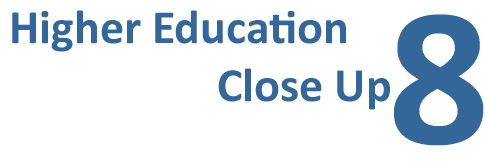What does a socially and epistemically just response to the call for the decolonization of South African university curricula mean for learning to teach?
Jo-Anne Vorster, Rhodes University
Abstract
This paper does two things. First, it responds to Case’s challenge to higher education researchers to ask educational questions, and second, it examines the implications of “stratified access to powerful knowledge” (McLean think piece). I aim to use these ideas to think differently about curricula, including pedagogy, in the South African higher education context at the present conjuncture. The educational question the paper will attempt to answer is two-pronged: How do South African academics need to think differently about their disciplines, the curricula they design and the pedagogical processes they use to respond in educationally legitimate ways to recent student calls to decolonise university curricula? and What frameworks can academic developers use in their work with academics to contribute to ways of thinking about curricula and pedagogy congruent with a decolonizing higher education context? To answer these questions, the paper examines the notion of epistemic (in)justice. It considers educationally sound ways to address epistemic injustice that occur in the post-apartheid South African university through misrecognition of students who have had unequal social and educational opportunities. That the majority of black university students drop out or fail is evidence that they continue to be “systematically epistemically wronged” (McLean think piece). Over the course of 2015 through wide-spread protests against high university fees, students also drew attention to the ways in which institutional cultures, including the curricula and pedagogical practices, particularly at high status historically white institutions, continue to contribute to both the social and the epistemological exclusion of black students. The challenge is to develop curricula that give students access to disciplinary knowledge that will enable them to participate in the international arena and that engage with issues relevant to their lived experiences. This means, where possible, including hitherto subjugated knowledges and epistemologies in the curriculum, and offering students the frameworks to critique them. Luckett (forthcoming) argues that this will require creative pedagogy that is “strongly framed and scaffolded”. Academic developers need to examine what kinds of conversations will enable academics to consider whether and how it is possible to recontextualise knowledge in their fields so that all students feel recognized and in ways that are congruent with powerful epistemological practices. This conceptual paper will offer a close-up consideration of these challenges.
Keywords
Epistemic (in)justice, decolonization, curriculum, academic staff development
Link to Full Paper (If submitted)
Conference Organisers
Paul Trowler
Lancaster University, UK
Alice Jesmont
Lancaster University, UK
Malcolm Tight
Lancaster University, UK
Paul Ashwin
Lancaster University, UK
Murray Saunders
Lancaster University, UK
Chrissie Boughey
Rhodes University, South Africa
Suellen Shay
University of Cape Town, SA

